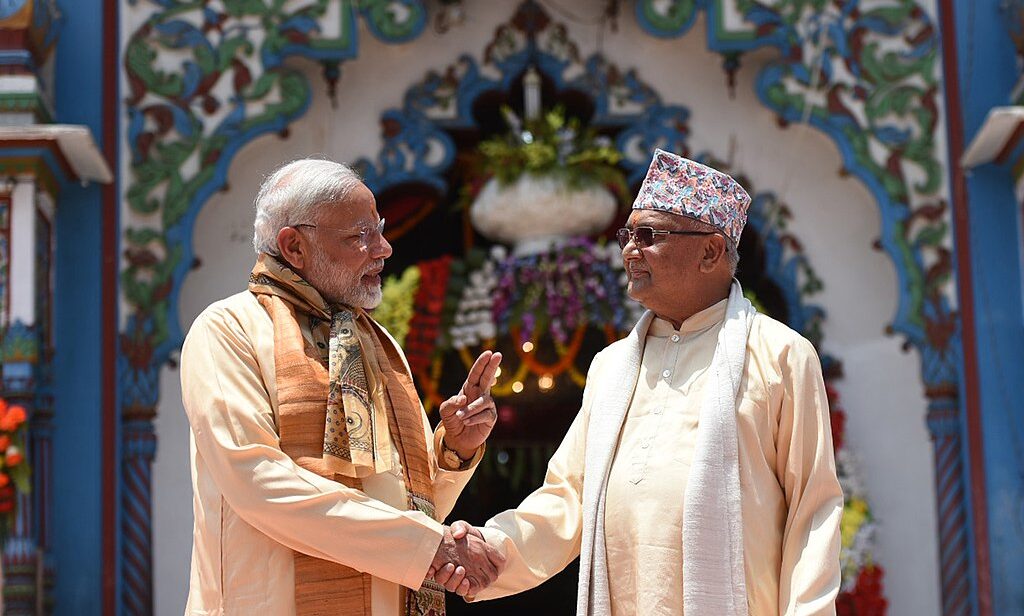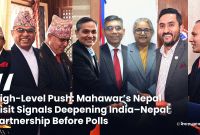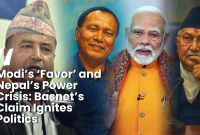SHOCK WAVES! Is Nepal PM's Stance on Terror a Dangerous Gamble for Regional Stability?

Kathmandu, Nepal – As tensions simmer between India and Pakistan following deadly cross-border military actions, a viewpoint on combating terrorism, reportedly resonating within circles close to Nepal's Prime Minister, is drawing considerable concern and debate. This perspective, emerging against a backdrop of historical accusations of the Prime Minister's past leanings towards Pakistan and a perceived alignment with Chinese interests over Indian ones, is seen by some analysts as a potentially perilous stance in a region already on edge.
The recent escalation, triggered by a horrific terrorist attack in Pahalgam, Indian-administered Kashmir, which claimed the lives of 25 Indian tourists and one Nepali citizen, has elicited varied responses within Nepal's ruling coalition. While one major partner, the Nepali Congress, has voiced support for India's right to act decisively against terrorist infrastructure, senior figures from the Prime Minister's CPN-UML party have struck a markedly different tone.
Raghubir Mahaseth, a former foreign minister and current head of the CPN-UML's foreign affairs department, has publicly advocated for restraint from both India and Pakistan, urging an immediate cessation of hostilities and a return to peace processes. While condemning war, Mahaseth's statements have been interpreted by critics as drawing an equivalence between a nation responding to a terrorist attack on its citizens and the actions of those who perpetrate or allegedly shelter terrorists. He emphasized that if India initiated the attack, it should stop, and likewise for Pakistan, while stressing that Nepal should not support any nation going to war, citing the importance of respecting sovereignty.
This approach, seemingly downplaying the imperative to directly confront the architects of the Pahalgam massacre, is what observers label as "dangerous." Critics argue that such a stance, particularly from a nation that also lost a citizen in the attack, could be misconstrued as an ambiguous position on terrorism itself. For families mourning the victims, and for a region weary of extremist violence, the call for an almost neutral de-escalation without a stronger condemnation of the initial terror act and its origins can feel like a deflection, potentially undermining the collective resolve needed to combat terrorism.
The human cost of this ambiguity is palpable. Many Nepalis, who themselves have often been victims of or affected by regional instability and terrorism, look for clear moral leadership. The sentiment is that condoning or failing to unequivocally condemn terrorist acts and their sponsors—regardless of geopolitical considerations—erodes trust and safety for everyone.
The Nepali Congress's spokesperson, Prakash Sharan Mahat, articulated a contrasting view, suggesting that Nepal must stand against terrorism and that India's actions were focused on sites from where terrorist activities were launched. He implied that supporting India's right to self-defense against terror aligns with Nepal's own interests and its stated zero-tolerance policy towards terrorism.
This divergence within the government highlights a profound challenge for Nepal's foreign policy, traditionally rooted in non-alignment. The question being asked is whether non-alignment in the face of brutal terrorism translates to neutrality towards the act itself, or if it necessitates a firm stance against extremist violence regardless of the actors involved.
For those who see the Prime Minister's Office as increasingly influenced by geopolitical calculations that prioritize a distancing from India, the current CPN-UML stance on the India-Pakistan crisis is viewed with suspicion. They fear it may embolden extremist elements if regional powers are not seen as united in their condemnation and response to terrorism. Ultimately, as South Asia navigates this precarious period, the perceived equivocation from Kathmandu adds another layer of complexity, leaving many to wonder about the long-term implications for regional security and the shared fight against a common enemy that knows no borders.




![From Kathmandu to the World: How Excel Students Are Winning Big [Admission Open]](https://www.nepalaaja.com/img/70194/medium/excel-college-info-eng-nep-2342.jpg)
